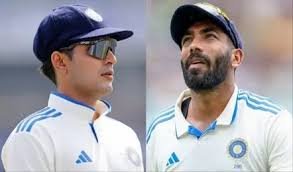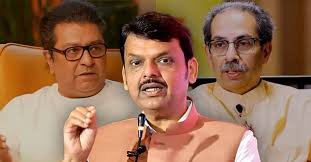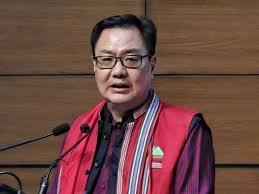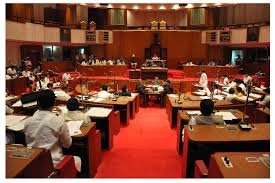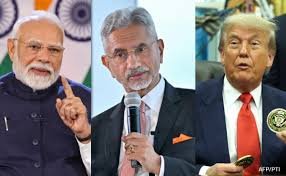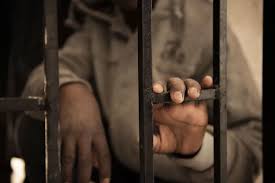
More than the improvement of children, their Focus is on crimes
-CJI DY Chandrachud said in a seminar organized on adolescent children
-CJI is on a three-day visit to Nepal
Kathmandu. Chief Justice of India (CJI) DY Chandrachud on Saturday gave an excellent lecture on adolescent children at a seminar organized by the Supreme Court of Nepal in collaboration with UNICEF. During this, he said that we focus more on the crimes committed by our children rather than improving them. He further noted that children are often driven to delinquent behavior due to economic inequality, domestic violence, and poverty. The CJI explained well the relationship between lack of economic resources and juvenile delinquency.
The Chief Justice of India said that in the backdrop of rapid development of technology, juvenile justice systems have to be coordinated by enhancing international cooperation and sharing best practices to deal with international digital crimes related to minors.
Justice Chandrachud is here on a three-day official visit to Nepal at the invitation of Chief Justice of Nepal (CJN) Biswambhar Prasad Shrestha.
Addressing a national seminar on juvenile justice, Chief Justice Chandrachud said, 'While discussing juvenile justice, we have to recognize the vulnerabilities and unique needs of children embroiled in legal disputes and ensure that our justice systems are integrated into the society. Promote empathy, rehabilitation and favorable reintegration opportunities.'
He said that it is important to understand the multifaceted nature of juvenile justice and its interrelationships with various dimensions of society.
Justice Chandrachud said, 'Often, we focus more on the crimes committed by juveniles rather than considering their reformation. It thus becomes necessary to acknowledge the complex nature of juvenile delinquency and adopt a comprehensive approach that deals with the underlying socio-economic factors that contribute to such behaviour.ΓÇÖ
Analyzing the juvenile justice systems of India and Nepal, the CJI said, by implementing strategies of prevention, intervention and rehabilitation, we can build a society that is more inclusive and provides every child the opportunity to fulfill his or her potential. Do. He also emphasized that juvenile justice plays an important role in shaping a fair and equitable society by focusing on corrective measures.
Justice Chandrachud said that by keeping the well-being of children at the forefront and providing access to rehabilitation and support services, the juvenile justice system helps in creating an environment conducive to the holistic development of young offenders.
,
-CJI DY Chandrachud said in a seminar organized on adolescent children
-CJI is on a three-day visit to Nepal
Kathmandu. Chief Justice of India (CJI) DY Chandrachud on Saturday gave an excellent lecture on adolescent children at a seminar organized by the Supreme Court of Nepal in collaboration with UNICEF. During this, he said that we focus more on the crimes committed by our children rather than improving them. He further noted that children are often driven to delinquent behavior due to economic inequality, domestic violence, and poverty. The CJI explained well the relationship between lack of economic resources and juvenile delinquency.
The Chief Justice of India said that in the backdrop of rapid development of technology, juvenile justice systems have to be coordinated by enhancing international cooperation and sharing best practices to deal with international digital crimes related to minors.
Justice Chandrachud is here on a three-day official visit to Nepal at the invitation of Chief Justice of Nepal (CJN) Biswambhar Prasad Shrestha.
Addressing a national seminar on juvenile justice, Chief Justice Chandrachud said, 'While discussing juvenile justice, we have to recognize the vulnerabilities and unique needs of children embroiled in legal disputes and ensure that our justice systems are integrated into the society. Promote empathy, rehabilitation and favorable reintegration opportunities.'
He said that it is important to understand the multifaceted nature of juvenile justice and its interrelationships with various dimensions of society.
Justice Chandrachud said, 'Often, we focus more on the crimes committed by juveniles rather than considering their reformation. It thus becomes necessary to acknowledge the complex nature of juvenile delinquency and adopt a comprehensive approach that deals with the underlying socio-economic factors that contribute to such behaviour.ΓÇÖ
Analyzing the juvenile justice systems of India and Nepal, the CJI said, by implementing strategies of prevention, intervention and rehabilitation, we can build a society that is more inclusive and provides every child the opportunity to fulfill his or her potential. Do. He also emphasized that juvenile justice plays an important role in shaping a fair and equitable society by focusing on corrective measures.
Justice Chandrachud said that by keeping the well-being of children at the forefront and providing access to rehabilitation and support services, the juvenile justice system helps in creating an environment conducive to the holistic development of young offenders.
,

.jpg)






